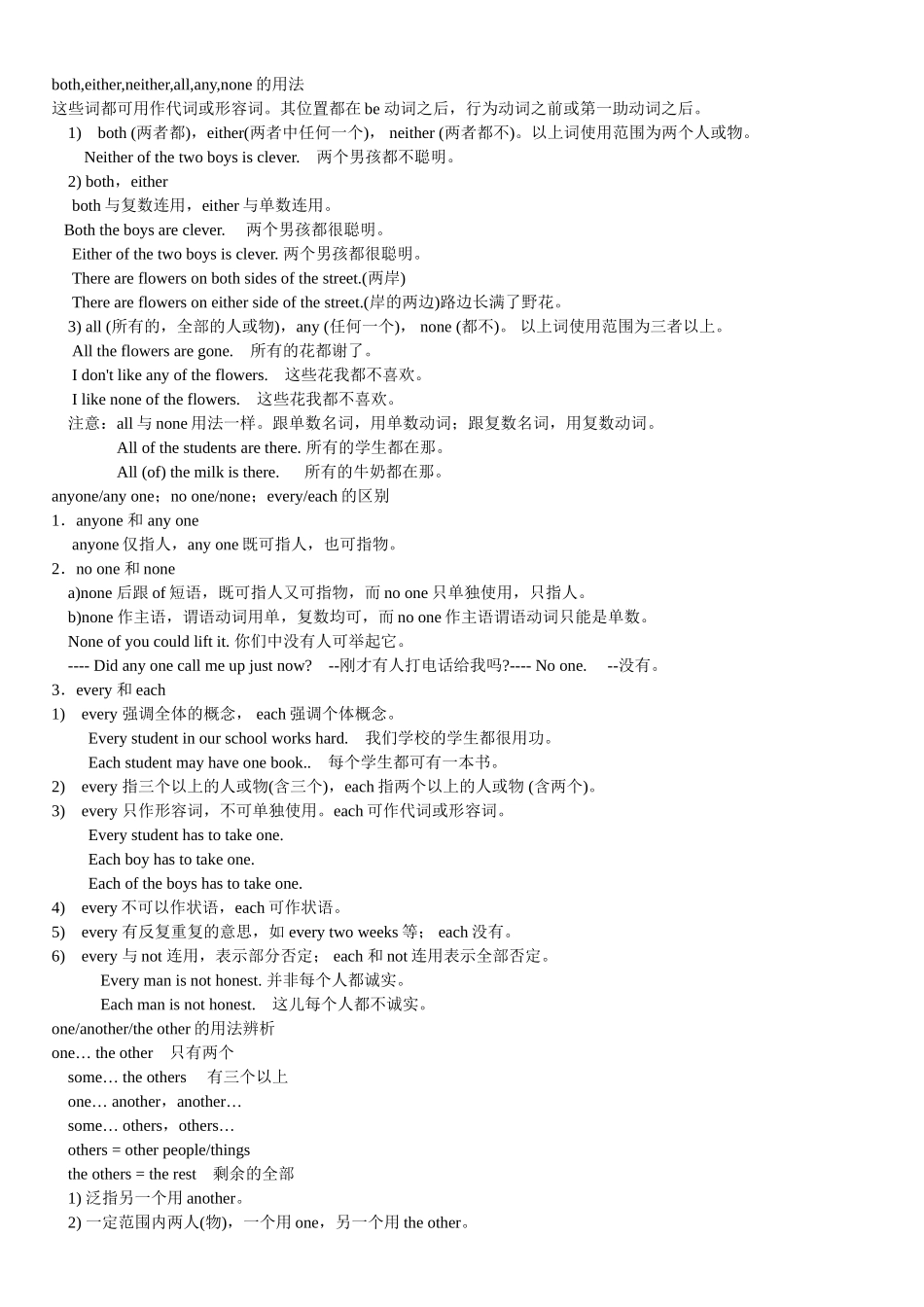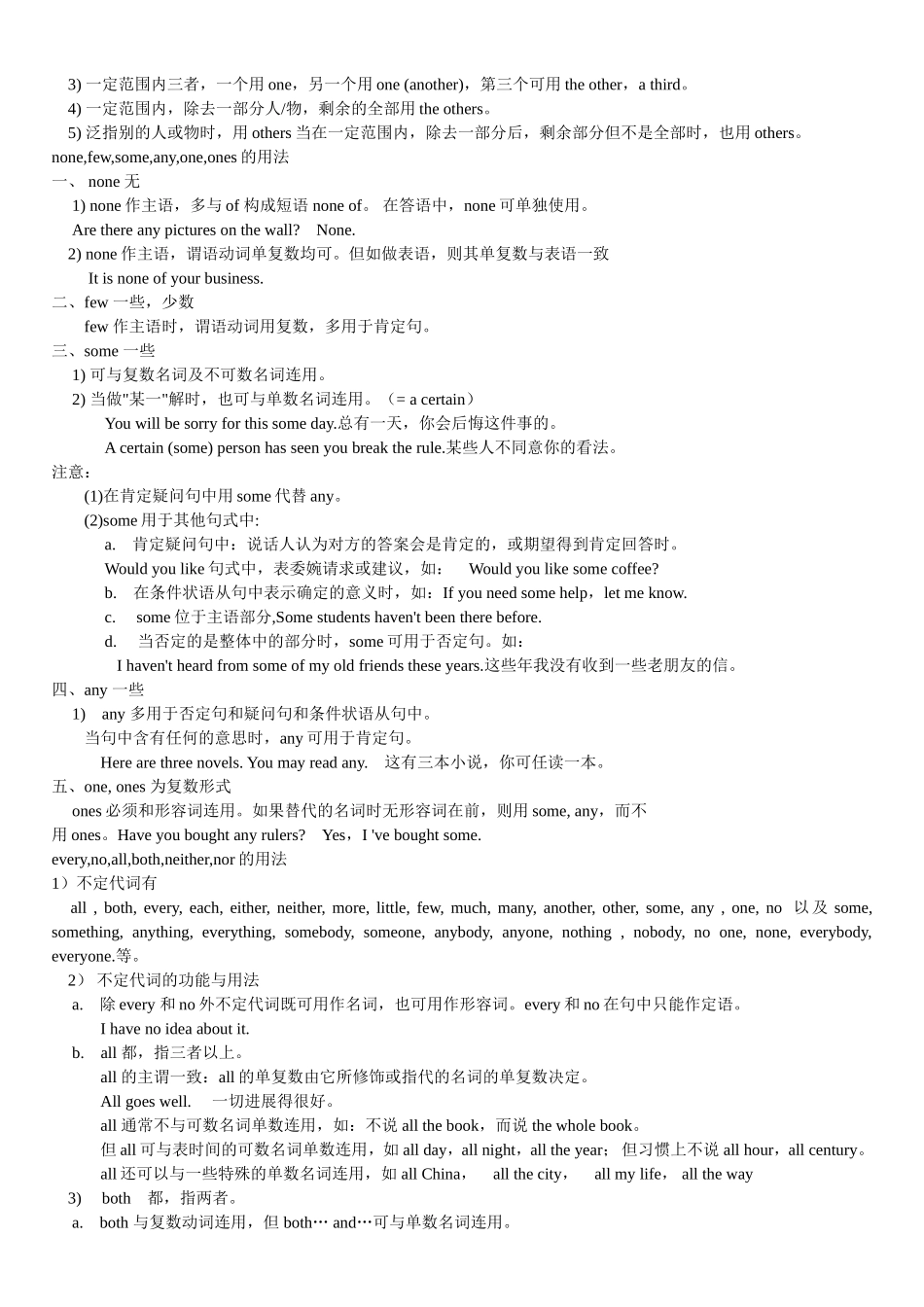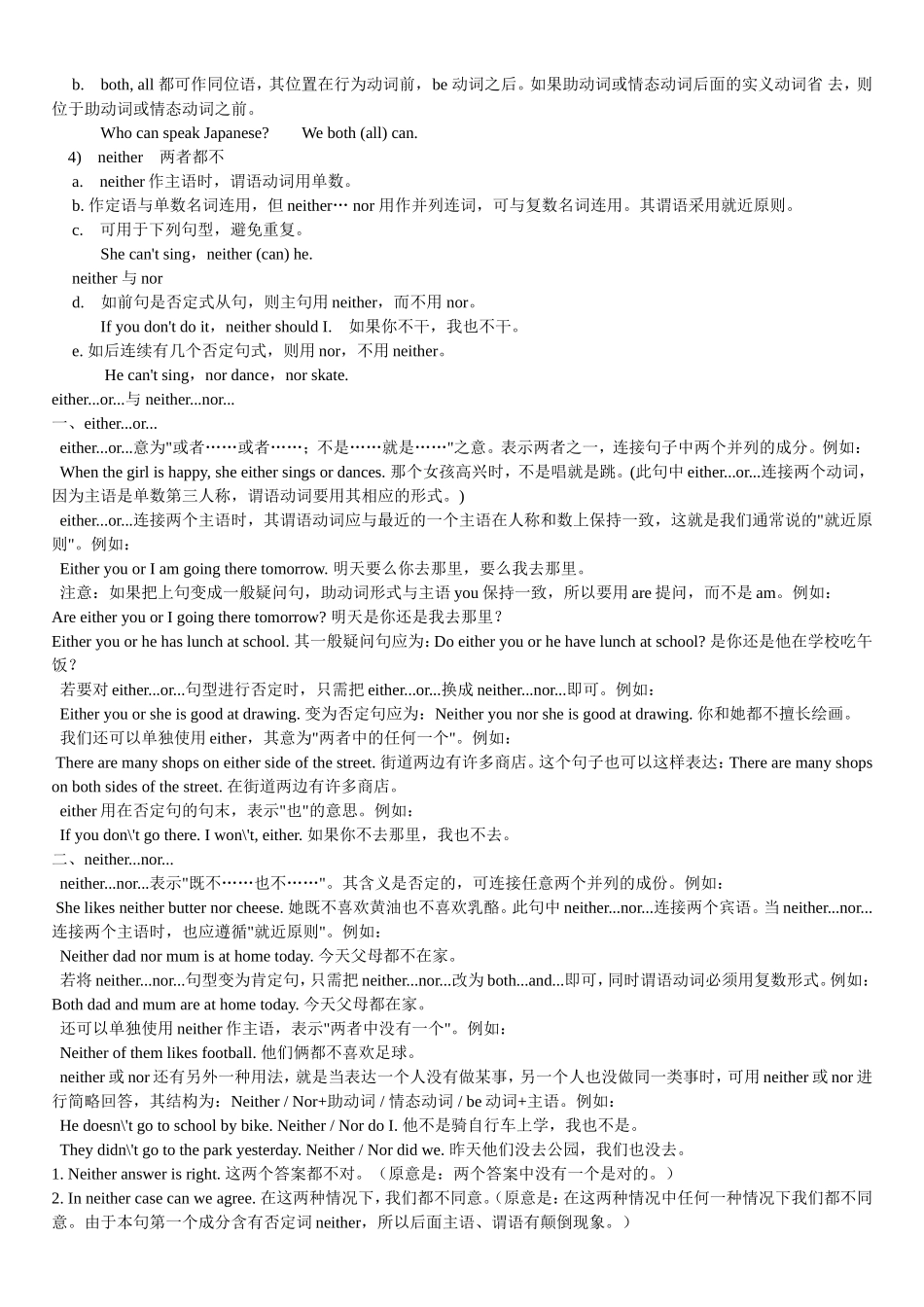both,either,neither,all,any,none 的用法这些词都可用作代词或形容词。其位置都在 be 动词之后,行为动词之前或第一助动词之后。 1) both (两者都),either(两者中任何一个), neither (两者都不)。以上词使用范围为两个人或物。 Neither of the two boys is clever. 两个男孩都不聪明。 2) both,either both 与复数连用,either 与单数连用。 Both the boys are clever. 两个男孩都很聪明。 Either of the two boys is clever. 两个男孩都很聪明。 There are flowers on both sides of the street.(两岸) There are flowers on either side of the street.(岸的两边)路边长满了野花。 3) all (所有的,全部的人或物),any (任何一个), none (都不)。 以上词使用范围为三者以上。 All the flowers are gone. 所有的花都谢了。 I don't like any of the flowers. 这些花我都不喜欢。 I like none of the flowers. 这些花我都不喜欢。 注意:all 与 none 用法一样。跟单数名词,用单数动词;跟复数名词,用复数动词。 All of the students are there. 所有的学生都在那。 All (of) the milk is there. 所有的牛奶都在那。 anyone/any one;no one/none;every/each 的区别1.anyone 和 any one anyone 仅指人,any one 既可指人,也可指物。2.no one 和 none a)none 后跟 of 短语,既可指人又可指物,而 no one 只单独使用,只指人。 b)none 作主语,谓语动词用单,复数均可,而 no one 作主语谓语动词只能是单数。 None of you could lift it. 你们中没有人可举起它。 ---- Did any one call me up just now? --刚才有人打电话给我吗?---- No one. --没有。3.every 和 each1) every 强调全体的概念, each 强调个体概念。 Every student in our school works hard. 我们学校的学生都很用功。 Each student may have one book.. 每个学生都可有一本书。2) every 指三个以上的人或物(含三个),each 指两个以上的人或物 (含两个)。3) every 只作形容词,不可单独使用。each 可作代词或形容词。 Every student has to take one. Each boy has to take one. Each of the boys has to take one.4) every 不可以作状语,each 可作状语。5) ...


